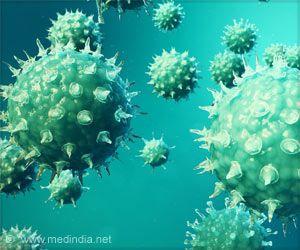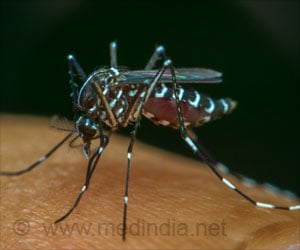Certain gut bacteria can reduce the effectiveness of the rotavirus vaccine, leaving some vaccinated children still vulnerable to infection and severe disease.

What is Rotavirus
Rotavirus is a virus that spreads easily among infants and young children, causing severe diarrhea, vomiting, fever and abdominal pain. Children who are infected with rotavirus disease can become dehydrated and may require hospitalization. Rotavirus vaccines have proven highly effective at protecting children in the United States and Europe but have relatively low efficacy in some low-income countries.‘#Gutbacteria play a crucial role in how well the #rotavirus vaccine works. One example is Clostridium perfringens, which can hinder the vaccine’s effectiveness.’





Rotavirus vaccines are orally administered, live, attenuated viruses that must infect their host’s intestine to elicit protective immunity. The protection provided by rotavirus vaccines is highly dissimilar among individuals leading the researchers to hypothesize that the composition of gut microbiota, amidst which the viral vaccine must infect, influence rotavirus vaccine efficacy. In this study, the researchers investigated the influence of human microbiomes on rotavirus vaccination by administering to mice microbial transplants from children with robust or minimal rotavirus vaccine responsiveness. They found that mice receiving microbial transplants from individuals who were highly responsive to the rotavirus vaccine abundantly shed rotavirus antigens and robustly generated anti-rotavirus antibodies. In contrast, mice receiving microbial transplants from children who had not responded to rotavirus vaccination exhibited only a modest increase in antibodies to rotavirus following vaccination and thus remained prone to rotavirus challenge.
Analysis of the microbiomes by DNA sequencing suggested involvement of Clostridium perfringens, which are bacteria known to occasionally cause overt illness but can also be present without causing disease in some humans and animals. Oral administration of cultured C. perfringens to mice partially mimicked the rotavirus vaccine non-responder traits. Re-analysis of published data found that abundance of C. perfringens in children is modestly associated with failure of the rotavirus vaccine.
“Our findings reflect that C. perfringens may be one of a panel of microbes, including bacteria and viruses, that can impact infection of and, consequently, immune responses elicited by rotavirus vaccine viruses,” Gewirtz said.
Source-Eurekalert













